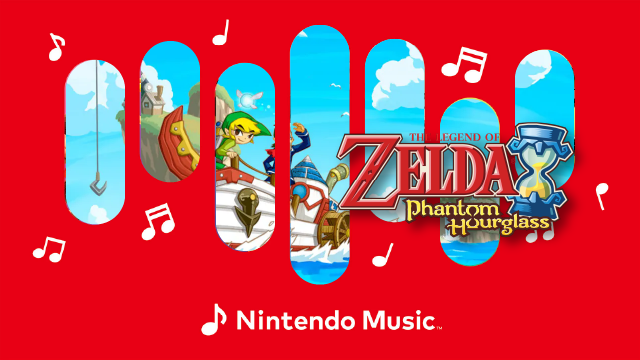In a recent episode of the Video Game History Foundation’s podcast, former Nintendo of America marketing executive Gail Tilden shared rare insights into Nintendo’s historically cautious stance on bringing its storied franchises to Hollywood.
During the interview with VGHF founder Frank Cifaldi, Tilden reflected on her experiences helping localize Nintendo products for Western audiences and the company’s approach to adapting its intellectual properties beyond video games. As the discussion turned to Nintendo’s attitude toward transmedia expansion in the 1990s, Tilden recalled the persistent interest from major studios in developing films based on iconic franchises like The Legend of Zelda and Metroid.
According to Tilden, legendary game designer Shigeru Miyamoto was unequivocally opposed to these adaptations at the time.
"People were constantly reaching out about producing a Zelda movie," Tilden noted.
She paraphrased an internal conversation with Miyamoto: "Even if someone as prominent as Steven Spielberg wanted to make a Zelda film, the answer was always a firm no." This resistance was rooted in Nintendo’s reaction to the infamous 1993 Super Mario Bros.
film.
Universally panned by both critics and audiences, the movie’s failure caused Nintendo to retreat from licensing its properties for cinematic adaptations for decades, wary of risking further damage to its brands.
Miyamoto’s steadfastness created a formidable barrier to any film project proposals involving flagship franchises such as Zelda. However, Tilden revealed that the possibility of a Metroid movie received more consideration.
She mentioned that the Metroid development team, led by Yoshio Sakamoto and, on the Western front, Kensuke Tanabe for Metroid Prime, displayed more openness toward film pitches.
At one point, acclaimed director John Woo’s production company discussed the prospect of a Metroid adaptation with Nintendo in a series of meetings.
Although prominent actress Charlize Theron was considered for the role of Samus Aran, the two parties never reached an agreement.
At the time, female-driven action films were scarce, and the recent commercial and critical failure of Catwoman, starring Halle Berry, further deepened Nintendo’s misgivings about pursuing the project.
Ultimately, the company chose not to license the film rights for Metroid, sensing the risk of another high-profile disappointment. Over the years, Nintendo’s approach to transmedia has evolved, with the company more recently embracing projects like The Super Mario Bros.
Movie (2023), which found significant commercial success.
Yet, these new ventures stand in stark contrast to the guarded posture maintained during the formative years of Nintendo of America’s Western expansion.
Tilden’s reflections highlight the protective philosophy long held by Nintendo and, in particular, Shigeru Miyamoto, whose commitment to preserving the quality and reputation of beloved franchises like Zelda and Metroid has shaped the company’s legacy across generations of gaming hardware, including the Nintendo Switch.
For fans and industry observers, these inside stories offer valuable context on Nintendo’s reputation for measured, strategic decision-making in the world of entertainment adaptations.
During the interview with VGHF founder Frank Cifaldi, Tilden reflected on her experiences helping localize Nintendo products for Western audiences and the company’s approach to adapting its intellectual properties beyond video games. As the discussion turned to Nintendo’s attitude toward transmedia expansion in the 1990s, Tilden recalled the persistent interest from major studios in developing films based on iconic franchises like The Legend of Zelda and Metroid.
According to Tilden, legendary game designer Shigeru Miyamoto was unequivocally opposed to these adaptations at the time.
"People were constantly reaching out about producing a Zelda movie," Tilden noted.
She paraphrased an internal conversation with Miyamoto: "Even if someone as prominent as Steven Spielberg wanted to make a Zelda film, the answer was always a firm no." This resistance was rooted in Nintendo’s reaction to the infamous 1993 Super Mario Bros.
film.
Universally panned by both critics and audiences, the movie’s failure caused Nintendo to retreat from licensing its properties for cinematic adaptations for decades, wary of risking further damage to its brands.
Miyamoto’s steadfastness created a formidable barrier to any film project proposals involving flagship franchises such as Zelda. However, Tilden revealed that the possibility of a Metroid movie received more consideration.
She mentioned that the Metroid development team, led by Yoshio Sakamoto and, on the Western front, Kensuke Tanabe for Metroid Prime, displayed more openness toward film pitches.
At one point, acclaimed director John Woo’s production company discussed the prospect of a Metroid adaptation with Nintendo in a series of meetings.
Although prominent actress Charlize Theron was considered for the role of Samus Aran, the two parties never reached an agreement.
At the time, female-driven action films were scarce, and the recent commercial and critical failure of Catwoman, starring Halle Berry, further deepened Nintendo’s misgivings about pursuing the project.
Ultimately, the company chose not to license the film rights for Metroid, sensing the risk of another high-profile disappointment. Over the years, Nintendo’s approach to transmedia has evolved, with the company more recently embracing projects like The Super Mario Bros.
Movie (2023), which found significant commercial success.
Yet, these new ventures stand in stark contrast to the guarded posture maintained during the formative years of Nintendo of America’s Western expansion.
Tilden’s reflections highlight the protective philosophy long held by Nintendo and, in particular, Shigeru Miyamoto, whose commitment to preserving the quality and reputation of beloved franchises like Zelda and Metroid has shaped the company’s legacy across generations of gaming hardware, including the Nintendo Switch.
For fans and industry observers, these inside stories offer valuable context on Nintendo’s reputation for measured, strategic decision-making in the world of entertainment adaptations.





